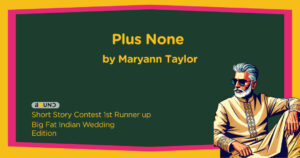If you’ve ever wondered what actually happens before a book becomes a book, here’s the secret: it starts with a book proposal. Think of your proposal as the business plan for your manuscript; it tells editors, agents, and publishers why your idea matters, why it will sell, and why you’re just the person to write it.
A book proposal is a document meant to convince a publisher that your project is a good fit for their list. It usually includes a synopsis, a chapter breakdown, an author bio, a market analysis, and sometimes a sample chapter. But what truly makes a proposal persuasive is how you bring your idea alive on the page, not just how neatly you follow the structure.
So how do you write a persuasive book proposal?
Your Book Overview: Introduce Your Book Like It’s Your Best Friend
If you can explain your concept in a few simple paragraphs while capturing the tone, themes, and the emotional core of your book, it instantly tells the editor that you know your project inside out. Editors move fast, and they appreciate proposals where the heart of the book is so clear that it almost stands up and introduces itself.
- Know Your Target Audience: Who Are You Really Writing For?
Once your core idea is solid, turn your attention to your reader. A strong proposal shows that you’ve really thought about the people who will pick up your book, and why they’ll care. Be specific. Instead of imagining an audience as broad as “everyone with a pulse,” describe the actual group that needs or wants what you’re offering. - Competitive Titles: Show Where Your Book Stands
Every editor wants to know where your book would sit on a shelf. This isn’t about declaring that your idea is unlike anything ever written, publishers hear that more often than you’d expect. It’s about showing that you understand the space your book belongs to. Point out a few books similar to yours, and then explain how your book adds something fresh or interesting. Want to dive deeper into this? Click here to read our full guide on competitive titles. - Your Marketing Plan: What You’ll Do Beyond Writing
Once you’ve covered your idea, audience, positioning, and author presence, show how the book will grow beyond submission. A realistic view of how you can support the book through your community, online presence, talks, workshops, or any existing networks can make a big difference. Publishers love knowing that an author is prepared to stand behind their book long after it’s written. - Author Bio: Why You’re the Right Person for This Book
Remember to highlight who you are as the author. Share the experience, knowledge, or perspective that makes you the right person to write this book. When an editor sees the unique angle you bring, your proposal becomes instantly more compelling.
A few things to remember while drafting your proposal:
Edit, edit, and edit ruthlessly. A persuasive proposal is organised and pleasant to read. Editing isn’t about cutting everything down; it’s about polishing your message so your ideas shine. Tighten long paragraphs, remove anything repetitive, and make sure each section does exactly what it needs to. A clean proposal signals professionalism, and it makes your idea feel that much more solid.
Your tone throughout the proposal matters too. You don’t need grand declarations or dramatic promises. Clear writing is far more convincing. A steady voice signals that you’ve thought through your project and that you’ll approach the manuscript with the same clarity.
At the end of the day, a book proposal is your chance to champion your own idea. If you treat it like a space where you get to share what excites you, not prove yourself, the whole process becomes easier and even a little fun. Trust your spark, write with confidence, and let your enthusiasm show. When you do that, your proposal stops feeling like a task and starts becoming the first step in bringing your book into the world.








